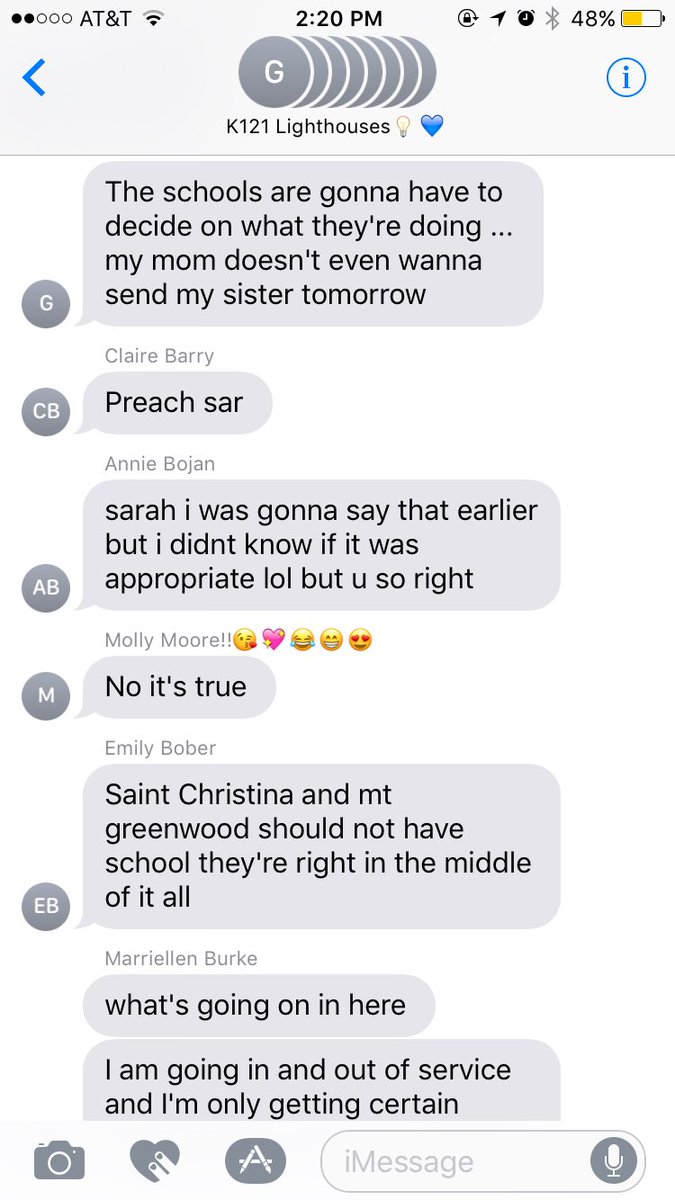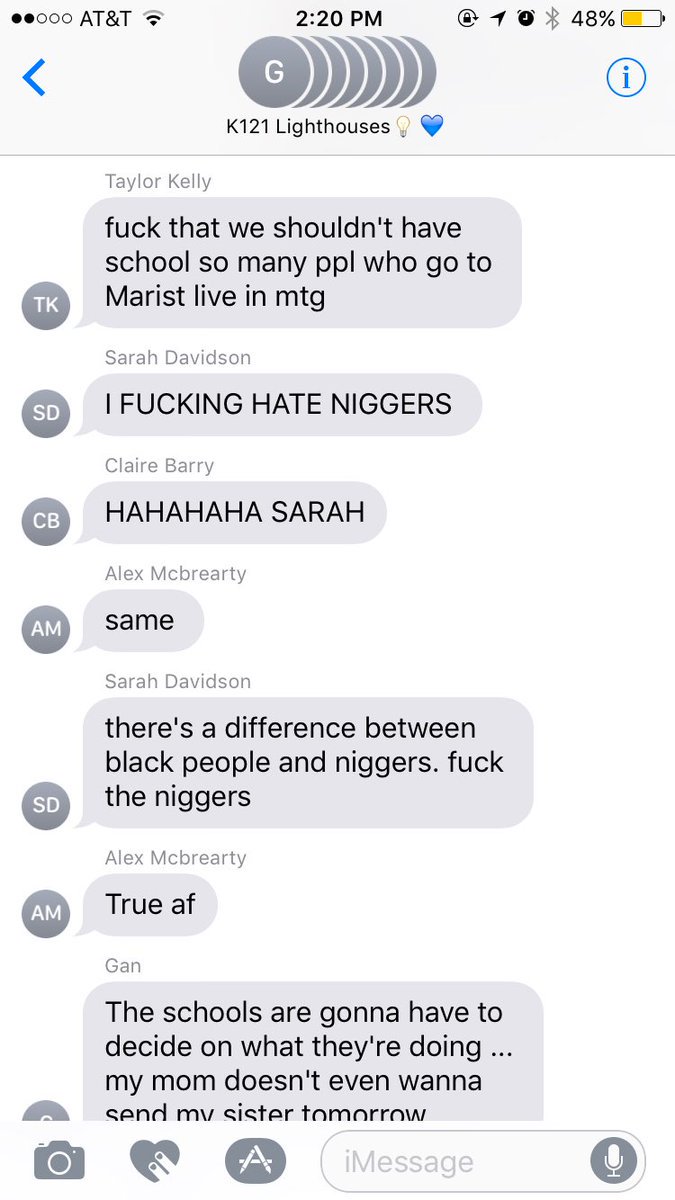
The families of two white Chicago teens who were expelled last month over “racially insensitive” text messages that were shared on social media are now seeking $1 million in a lawsuit against officials at the school.
The lawsuit accuses Marist High School and two officials at the private Catholic school of unjustly expelling the students over text messages that were meant to be private. The complaint, filed Monday in Cook County Circuit Court on behalf of the girls and their fathers, acknowledges that the comments were “at most, racially insensitive” and argues that the school used the girls as “scapegoats” amid social media backlash over the comments.
The girls, both minors, are identified only as Jane Doe and Jane Roe in the complaint; their fathers are identified as John Doe and John Roe.
Larry Tucker, the Marist High principal, and Beth O’Neill, one of the private school’s deans, are named as defendants.
According to the complaint, the two girls and 30 other students were part of a group exchanging text messages in which they talked about the Black Lives Matter movement and a protest following the Nov. 5 shooting death of a black man in Chicago.
Joshua Beal, of Indiana, was shot by an off-duty police officer during a confrontation in Chicago’s Mount Greenwood neighborhood, where Marist High School is located – and where Black Lives Matter was planning a protest. Police said Beal was shot after he didn’t drop his weapon.
Threats of a protest prompted school officials to cancel classes. Leading up to that announcement, one of the students sent a tweet that said the Black Lives Matter group would bring members of the Gangster Disciples, a street gang from Chicago’s South Side, to “to kill all white kids” in Mount Greenwood in retaliation for Beal’s death, according to the complaint.
“I F—- HATE N—-,” one student wrote.
“HAHAHAHA,” responded another.
“same,” another message read.
“there’s a difference between black people and n—-, f– the n—-,” another said.


The names of the students who sent the texts were redacted in court records.
But according to the complaint, someone from the group took screenshots of the texts and posted them to the high school’s official Facebook page. Someone also shared the screenshots on Twitter and tagged Tucker, the principal.
The plaintiffs’ attorney, Steven Glink, did not respond to a request for comment. But he told the Chicago Tribune that the messages were altered and that context was removed so they looked “more incriminating” than they actually were.
He said that someone had a “personal vendetta” against the girls.
Tucker and O’Neill later decided to suspend the plaintiffs and three other girls who were part of the group text, the complaint says.
On Nov. 7, Tucker and O’Neill wrote a letter to parents, saying they were “devastated” by the controversy sparked by the texts, which they said “contradict” the school’s mission.
They also wrote that school officials had met with a “diverse group of student leaders” for a “meaningful dialogue” about the situation.
Three days later, they wrote a second letter telling parents that the two girls had been expelled.
It’s unclear if the three others who were suspended were also expelled. A school representative said officials would not comment, citing the pending litigation.
Tucker and O’Neill also said in their letter that school officials had contacted experts on “diversity awareness, education and training.”
“It is our plan to have them help our community learn and grow from this event,” the letter states.
The texts and the school’s decision to expel the students became the subject of pitched conversations on social media.
One poster on Facebook said that if her younger sister, who attends Marist, made similar comments, she would “absolutely support and understand expulsion. These girls know better.”
Another described the texts as “poor language selection,” but said expulsion may have been unnecessary.
“Marist leadership is in a tough position,” the person wrote. “Whatever decision Marist makes is bound to be fraught with criticism.”
The plaintiffs claim that the decision to expel the two girls was “arbitrary and capricious,” noting that the group text consisted of 287 messages and that many of the comments had similar language. They also claim the girls were expelled without being formally charged with misconduct or going through a disciplinary process.
The school’s actions, the lawsuit argues, violated policies stating that students will not be dismissed or expelled unless their conduct damages the school’s reputation. The plaintiffs argue that the girls did not violate any policy because their messages were meant to be private, and that they didn’t post anything on the school’s social media accounts.
The incident also resulted in an invasion of the students’ privacy, the complaint alleges, noting that group text was started after the girls participated in a religious retreat known as Kairos, the purpose of which is to allow students to express themselves in a private forum without any fear of retaliation.
The plaintiffs also noted a 2014 incident in which a Marist student athlete, who is black, advocated on Twitter for the killing of white people. The lawsuit claims that the comments were simply glossed over and the student athlete was not disciplined.
The lawsuit claims that the texting controversy ruined the reputation of the girls, who had been “outstanding students,” and affected their ability to attend the college or university of their choice.
The lawsuit requests that each of the girls be allowed to return to school or be given a full refund of the $65,000 their families had paid in tuition, books and other expenses.
They also requested for $1 million in damages for invasion of privacy resulting in damaged reputations, emotional distress and public scorn for being labeled as racists.
(c) 2016, The Washington Post · Kristine Guerra

